Areas of Inquiry
LINCS is ingesting a broad range of cultural heritage data. The project is open to taking structured, semi-structured, and unstructured datasets covering everything from images to texts, maps to music—so long as the source data itself is readily available. The following Areas of Inquiry reflect the interests of the researchers involved at the beginning stages of LINCS. We recognize that these will change and grow over time and will include any future updates on this page.
Canadian Publishing
Researchers will dive into Canadian publishing histories looking for patterns and local effects—the sorts of connections that elucidate recent controversies over gender bias, concepts of nationhood, or claims to Indigenous identity within the Canadian literary establishment.
Geohumanities
This group will focus on tools and methods for grappling historical change, reconciliation, and cultural and methodological differences as they apply to engaging with spatial entities in LOD. Interconnections of data with sources will leverage the largely quantitative spatial turn in recent science in ways that also support qualitative inquiry. The group will liaise with the Linked Pasts and Pelagios network.
Indigenous Knowledges
Researchers will grapple with the challenges associated with representing Indigenous materials and perspectives in linked data form, including questions of sovereignty, trust, access, and decolonizing metadata, and relationships to community and land. This group could go forward independently or might combine with the resistant epistemologies group.
Knowledge Systems
Researchers with expertise in different forms of knowledge representation will grapple with the promises and the challenges of LOD in order to advance scholarship for humanities researchers worldwide.
Literary and Performance History
Rich coverage of literary and performance history, especially of women’s writing, networks, and reception will allow scholars to explore patterns of movement and formative professional networks in the history of entertainment.
London and the British Empire
Researchers will investigate Britain’s cultural, political, and economic impact, and Canada as a settler colony, thanks to the aggregation of multiple datasets spanning from the middle ages to the present.
Material and Textual Cultures
Researchers engaging with material culture within the museum community will mobilize LOD to invite analysis based on aggregating physical properties of numerous historical artifacts. Digital textual scholars will plumb computationally tractable documents to identify cross-textual patterns that are currently inaccessible.
Prosopography
Digital methods have renewed the field of prosopography or personography, the study of people in groups, by mobilizing granular data on individuals as the basis for larger inquiry. Prosopographical clusters will benefit from linked biographical data to exploit the unrealized transdisciplinary, transgeneric, and transnational dimensions of semantic research ecologies.
Resistant Epistemologies
LINCS includes researchers whose datasets embed non-hegemonic understandings of history or contemporary culture, and of how knowledge works to resist dominant world views. The inclusion of data based in such epistemologies will help to push marginalized and resistant knowledge representations into the Semantic Web.
